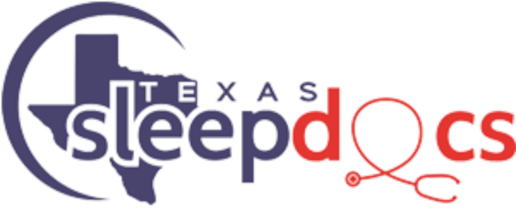Frequently Asked Questions
The five most common types of sleep studies performed at our sleep center:
1. Polysomnogram (PSG) – requires a night in a sleep lab to monitor numerous aspects of sleep.The study evaluates sleep stages, leg movements and provides a comprehensive evaluation of apnea. It also assists in the diagnosis of other disorders that may present with excessive sleepiness, such as narcolepsy or periodic leg movement disorder.
2. Continuous Positive Airway Pressure (CPAP) Titration is a nighttime study using a nasal CPAP. The diagnostic equipment used in this study is the same as the PSG with the addition of a nasal mask. This device blows air through a mask into the nasal passages and prevents upper airway closure during sleep. This test determines the correct air pressure needed to effectively maintain an open airway.
3. Split Night study is the same as a PSG for the first two hours. If in those two hours one meets the criteria for sleep apnea, then a CPAP device is applied and worn through the remainder of the night.
4. Multiple Sleep Latency Test (MSLT) - is a daytime study, which involves a series of naps. This study assesses daytime sleepiness. A physician may order a MSLT to follow a PSG nighttime study or the daytime study maybe ordered independently. The diagnostic equipment used for a MSLT is less extensive than the nighttime study. The MSLT will last most of the day. Over the course of the day, you will take five scheduled naps. Each of these nap trials is separated by a two-hour break. Depending on the results, a shorter four-nap study may also be used. Be prepared to stay for the full five-nap version of the study There will be a urine test at the beginning of the study and your body must be free of any depressant and stimulants. Please talk with your doctor about which medications that you should discontinue prior to your appointment.
5. Oral Appliance Therapy - This is similar to a CPAP titration study except an prefit, preliminary oral appliance is worn instead of the the CPAP. Our technicians are able to adjust the appliance remotely and can determine if an oral appliance is effective and what setting to start your therapy.
6. Home Sleep Apnea Testing - Allows you to sleep at home wearing equipment that collects information about how you breathe during sleep. You will usually set up the testing equipment yourself multiple nights. These devices measure your breathing and blood oxygen level and measure your heart rate or other information about your body.
If you have any other questions, please feel free to contact us at any time.
